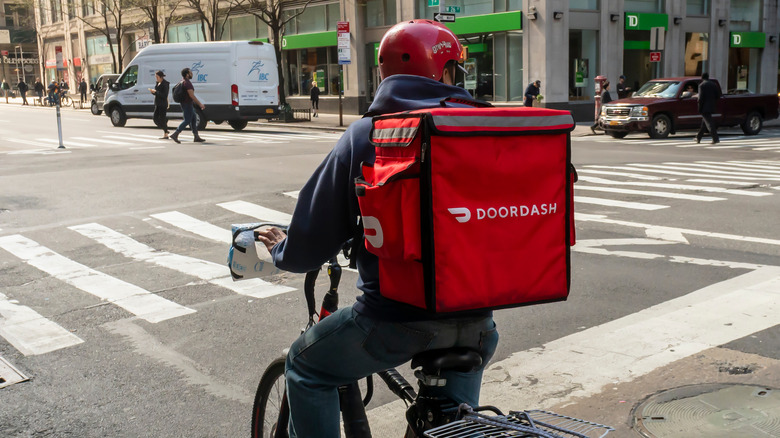The Real Reason Google Is Being Sued Over Restaurant Searches
Showing up on a Google search is generally a good thing for a business, but one lawsuit alleges that the search engine juggernaut has misrepresented them and taken a cut of their hard-earned orders without their permission. According to Food & Wine, a proposed class-action lawsuit was filed in the U.S. District Court by Keller Lenkner, a law firm representing Left Field Holdings, "a franchisee of Lime Fresh Mexican Restaurants." The firm is currently recruiting other affected restaurants to join in on the suit. Keller Lenkner writes on their web page, "If Google has allowed customers to place online orders from your restaurant, you may be entitled to compensation." The site then directs restaurants to answer a few questions to find out if they qualify to be part of the suit.
The premise of the lawsuit is that customers who search for a restaurant using Google are then presented with a "Restaurant Information Box." An "Order Online" feature is included in this box, which apparently sends the customer to a third-party service rather than the restaurant's own ordering site. When orders are placed via a third-party service, the restaurant has to pay for the service and some of that money may go to Google. As many restaurants are going out of business due to the pandemic, business owners may not be too pleased by this perceived lack of transparency.
The lawsuit's claims and Google's response
The suit claims that Google set up these ordering landing pages without the restaurants' permission, which is the main crux of the issue. When a customer encounters a popup page on Google, they are rerouted to food delivery services like DoorDash, Grubhub, Uber Eats, and Postmates, says Nation's Restaurant News. Allegedly, Google's portion of the fees can be as much as 30%.
Google, however, says that restaurants can specify whether or not this feature is used for their online order. Furthermore, they claim that Google doesn't get any sort of payment when the third-party feature is used. Spokesperson José Castañeda told Food & Wine, "We dispute the mischaracterizations of our product and will defend ourselves vigorously."
Vigorous denial aside, the lawsuit claims that Google changed search tactics in 2019, and at that time didn't get permission from restaurants to peddle their wares. Per Food & Wine, the suit calls the sites "illegitimate 'storefronts,' " and also says that Google violates intellectual property rights. Sounds like a good old-fashioned case of he said, she said. We'll let the courts figure this one out.

